Columbus initiative taps Black, female real estate developers to create affordable housing
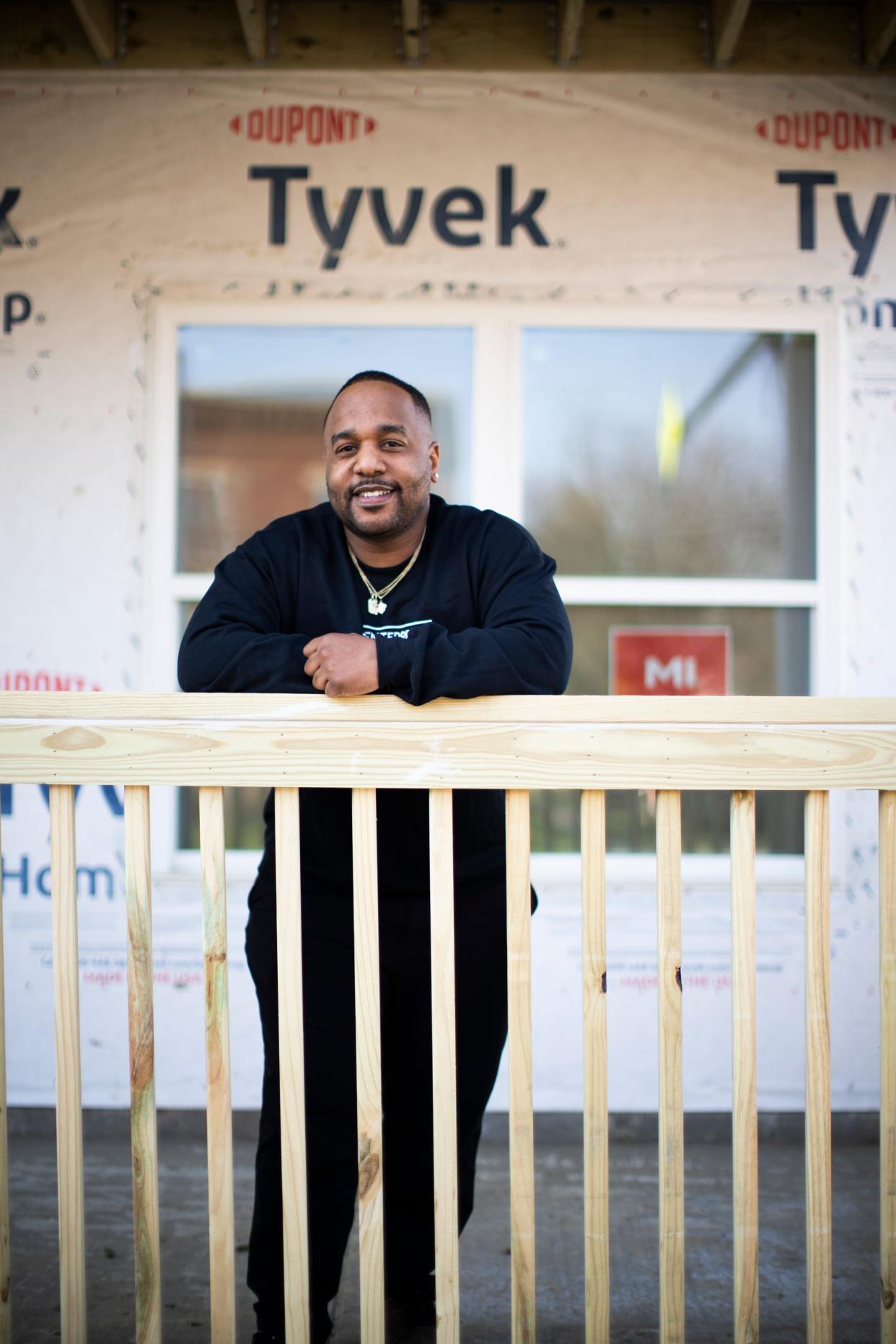
When Wade Jordan III hands keys to a family, he feels like he’s the one getting to move into a new home.
“That’s super exciting for me,” said Jordan, an affordable housing developer in Columbus. “I’m able to put together a team of individuals that build these structures, and then it does what I love — it helps a family. I get joy out of seeing the end result.”
Jordan, 44, is the founder and owner of WJ3Enterprises and began his journey to becoming an affordable housing developer in 2007 when he rented out one side of the duplex he owned.
Fast-forward nearly 20 years later and he’s a graduate of the Affordable Housing Trust’s Emerging Developers Accelerator Program (EDAP) who is developing four duplexes in the Southern Orchards neighborhood on Columbus' South Side.
The program helps minority and female developers get the training and connections they need to begin developing affordable housing locally, and it's one of a growing number of similar programs across the country, said Collete English Dixon, executive director of the Marshall Bennett Institute of Real Estate at Roosevelt University in Chicago.
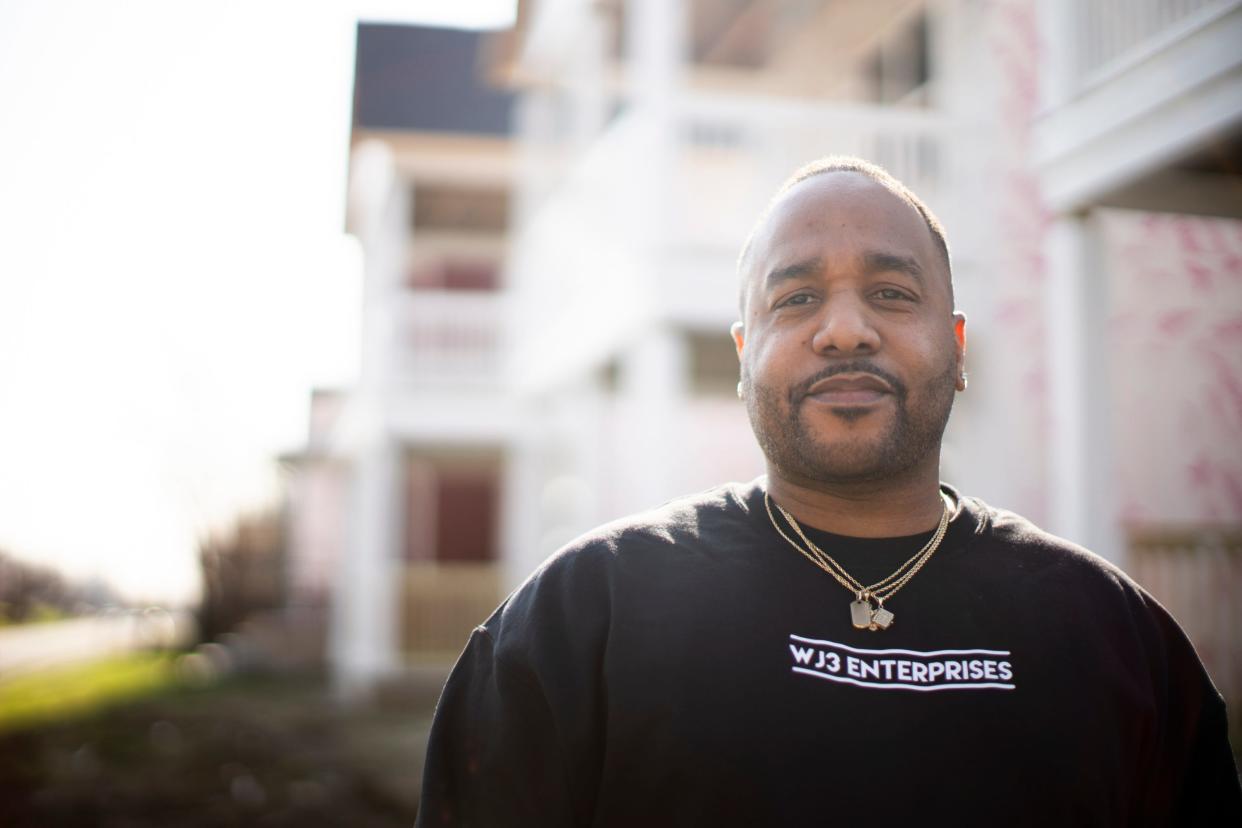
But it remains to be seen if programs like these — which began to spring up more after the 2020 murder of George Floyd Jr. by then-Minneapolis police officer Derek Chauvin and subsequent calls for more racial equity — will actually have the desired outcome, English Dixon said.
English Dixon believes to be truly successful and bridge the wealth gap, developers may have to diversify the types of housing they work on because it can take longer to develop — and thus profit — from affordable housing.
"It is very much applaudable and supportable to have organizations want to provide these sorts of resources to help bridge that gap of exposure and opportunity for diverse developers," English Dixon said. "The jury is still out on what is the best way to provide this set of resources and have sustained outcomes."
Why create the emerging developers program?
The trust's six-month program began in May 2022 and is now working with its third group of participants. A total of 24 participants, including Jordan, graduated from the first two groups combined, while the current one has 15 participants, said Lark Mallory, president and CEO of the Affordable Housing Trust.
So far, graduates have created or preserved 79 units of affordable housing in the city, with another 22 units in development, Mallory said.
It was a vision of Mallory's to begin the program, which launched with funding from JPMorgan Chase ($150,000), Franklin County ($5 million) and the city of Columbus ($5 million).
Recently, JPMorgan Chase donated another $500,000 to continue the program, said Mallory. The money is used on the classes, paying instructors a small stipend for conducting five free consulting sessions for each participant. Individuals also pay $1,250 to enroll in the program.
Housing is the hottest topic in central Ohio, Mallory said, in large part because of the lack of affordable housing.
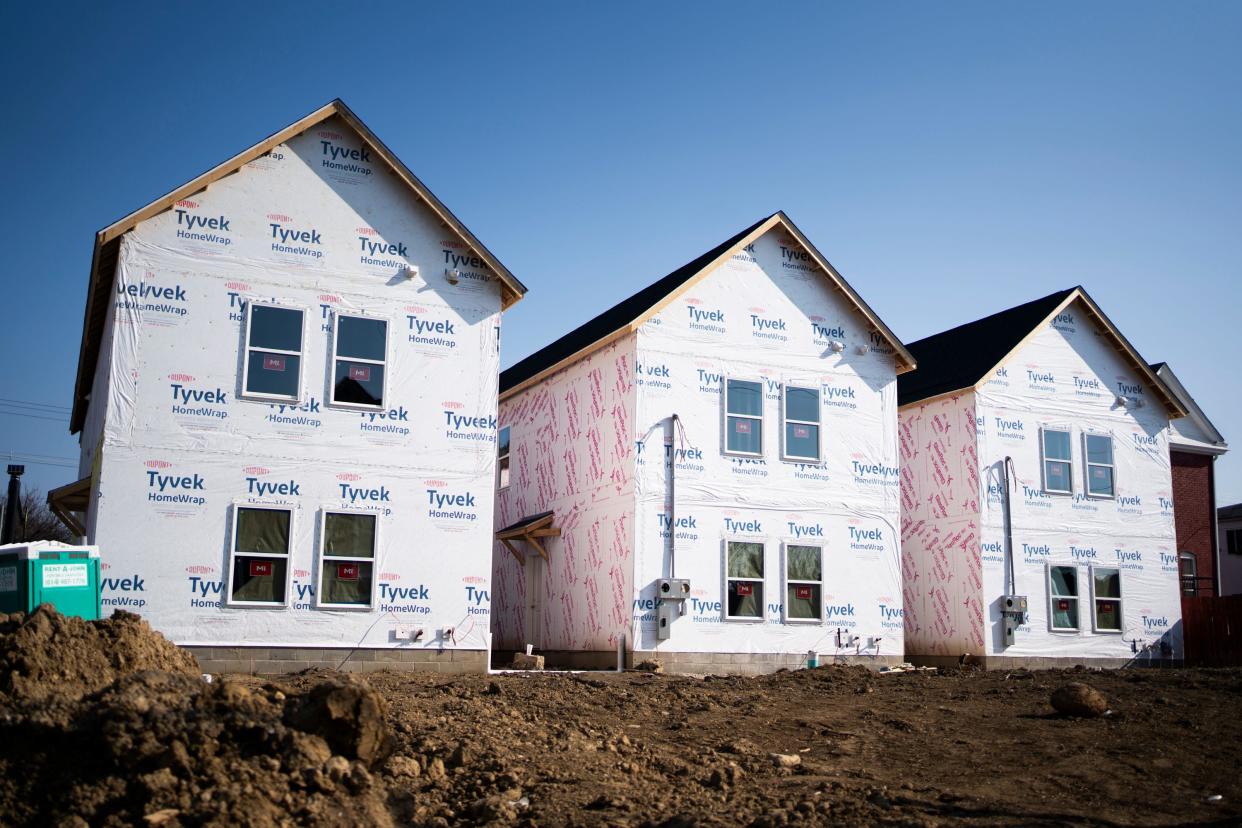
There is a need for an estimated 52,500 housing units for low- and moderate-income households in Franklin County, where many people in those income brackets spend more than half of their incomes on housing, according to a 2023 estimate by the Affordable Housing Alliance of Central Ohio.
There are many great real estate developers in the area, but more are needed, Mallory said. Graduates can develop rental properties like Jordan or homes to sell affordably, though the cost of land and construction make it hard for developers to make home ownership affordable, she said.
Including more perspectives in housing development
Besides trying to address the lack of affordable housing stock, the program also brings diverse voices to the table to talk about and help solve the issue, she said.
"Different people are going to give you different perspectives," Mallory said, citing research that shows that greater diversity in staff makes for more profitable companies. "We need every tool possible."
Being a minority makes it tougher to break into an industry, Jordan said, as it often means there's not a lot of people like you doing the same thing.
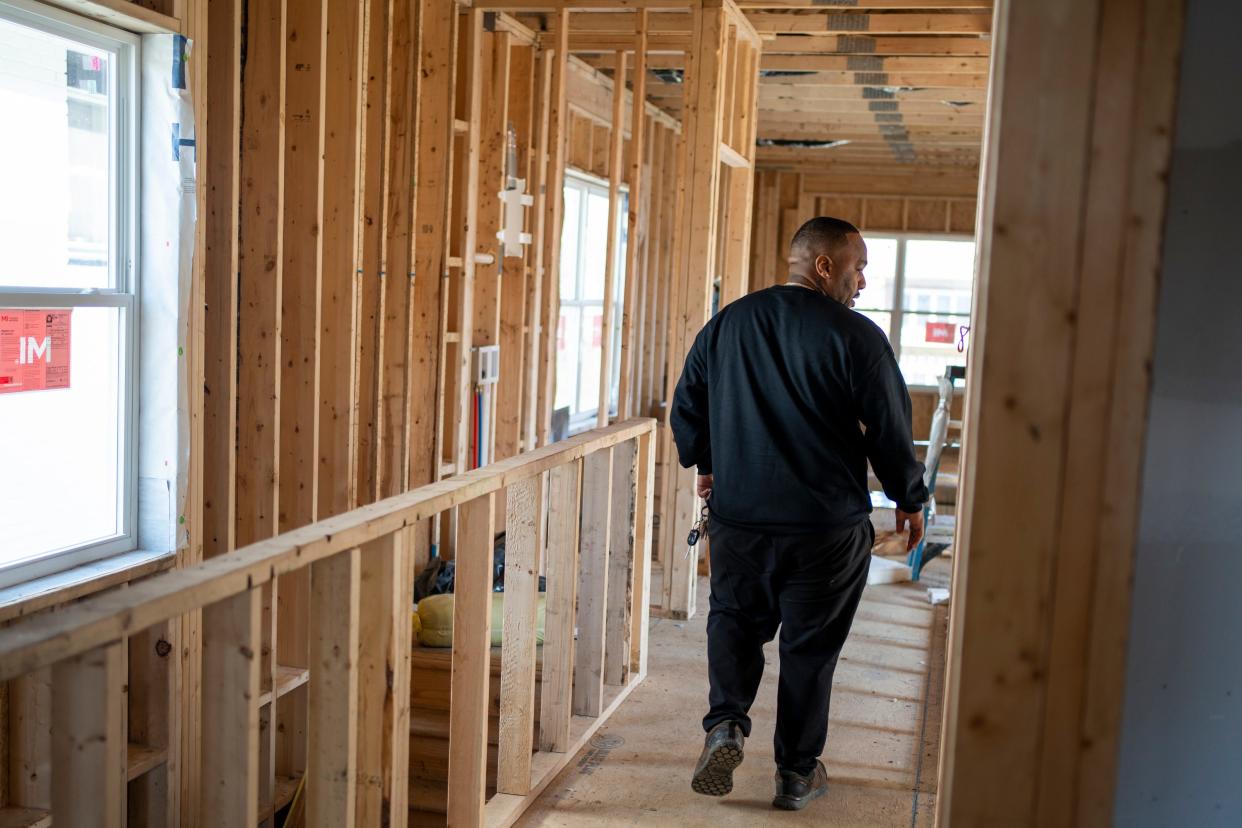
Black and Hispanic real estate developers account for less than 1% of the industry, according to Grove Collective Foundation, a Washington, D.C.-based consulting group.
"This (emerging developers) program, it makes me included in the bigger picture," Jordan said. "It's very important for women and minorities to be able to develop things and bring their perspective."
The program, Jordan said, changed his life.
Jordan applied to be part of the first cohort but didn't make the cut. Instead, the trust funded one of his development projects, and he got accepted in the next group. The trust helped to fund two duplexes he built on the Hilltop before he was part of EDAP, and it is helping to fund the duplexes he is currently developing in Southern Orchards, Mallory said.
It's not unusual to see graduates of the program scale up their businesses and grow post-graduation, she said.
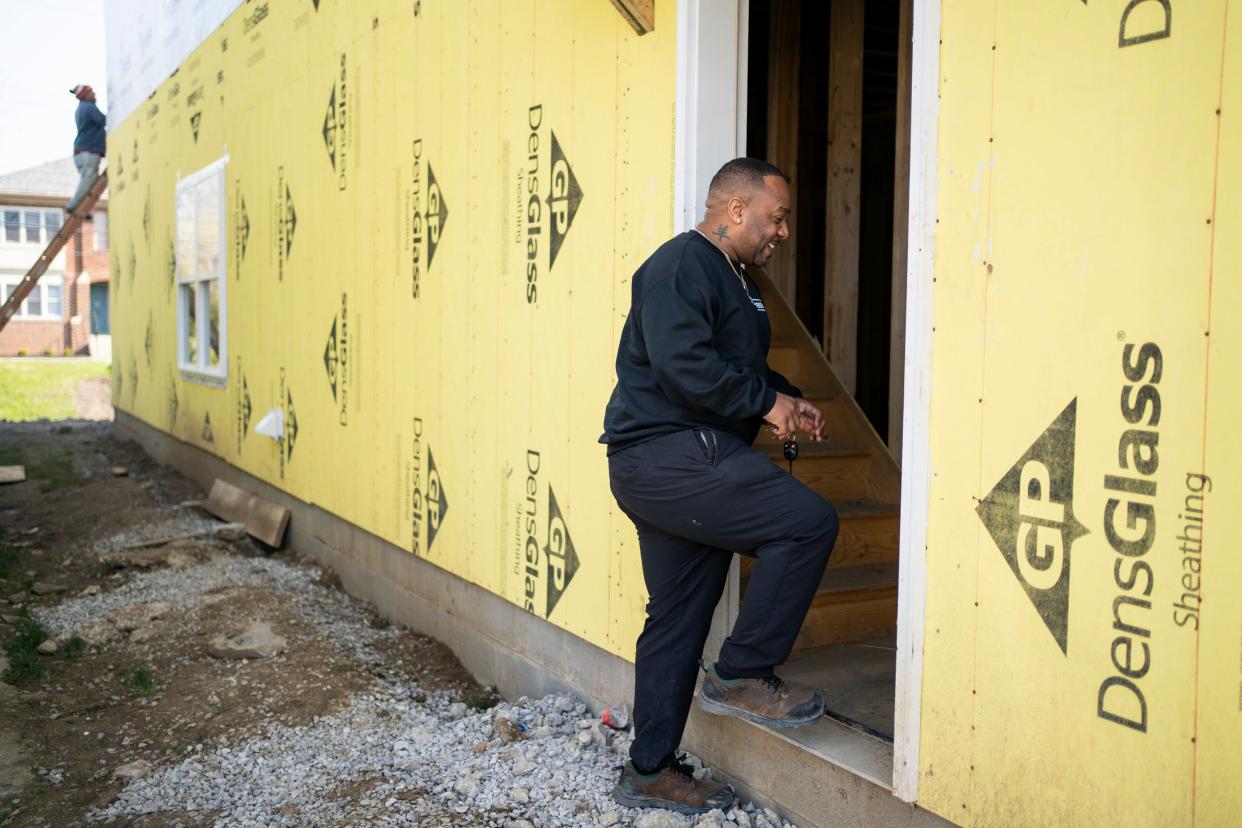
An integral part of the program is helping developers build their networks, whether through the developers that teach the classes or through the education programs on developing multifamily rental properties available to all graduates, Mallory said.
"Every unit an EDAP graduate creates … that unit matters for that family. We've changed the situation for that family," Mallory said.
Destiny Lamar, 28, is a testament to that. She moved into one of Jordan's properties on the Hilltop in January with her two children, ages 12 and 9.
It's the first house the family has lived in, after years of renting apartments, and it's been a great experience, Lamar said. From the nice neighborhood, to the space, to working with Jordan, she has enjoyed the experience and feels like she was able to accomplish something for her children, who love the home.
"Coming from an apartment and going to a newly built house was just like, Wow!" Lamar said.
She thinks there should be more Black developers like Jordan, who she believes are more likely to rent to Black people. Lamar said she's found other developers who won't because of negative stereotypes.
"I do feel like there should be more Black people in the community that are able to get the opportunity to own houses and rent them out to others," Lamar said.
dking@dispatch.com
@DanaeKing
This article originally appeared on The Columbus Dispatch: Affordable housing program help Columbus minorities, women develop
